Imagine you have a product or service that you know could be a hit. But in a world flooded with brands vying for attention, how do you make yours stand out? That’s where digital marketing comes into play. It’s the art and science of promoting your brand using the internet and digital channels.
But it’s more than just advertising online; it’s about building relationships, creating value, and reaching the right audience at the right time. In this guide, you’ll explore the basics of digital marketing, learn about its different types, and discover the future trends of digital marketing that will shape this ever-evolving field.
Digital marketing isn’t just for large corporations with deep pockets. In fact, it has leveled the playing field, allowing small businesses and startups to compete and reach audiences across the globe. With the right strategies, you can build brand awareness, nurture customer relationships, and drive significant growth all from the comfort of your laptop.
This article will serve as your complete roadmap to understanding digital marketing, offering you practical tips and insights to kickstart your journey.
Digital Marketing: What Does it Mean Actually?
Digital marketing is the process of promoting products, services, or brands through digital platforms. Unlike traditional marketing, which focuses on channels like print, radio, or TV, digital marketing uses websites, social media, search engines, emails, and more to reach potential customers. It’s all about connecting with people where they spend the majority of their time online.
Digital marketing can take on many forms, from visually engaging social media campaigns to informative blog content that educates potential customers. It’s an ever-changing landscape that requires adaptability and a good understanding of your audience. The key benefits of digital marketing is its ability to be highly targeted, allowing you to focus on the people most likely to be interested in what you offer.
Why Digital Marketing Matters?
Think and realize that, almost everyone is online. Whether scrolling through social media, reading blogs, or shopping on e-commerce sites, your potential customers are there. Digital marketing allows you to target these users precisely, track their behaviors, and adjust your strategies in real-time. It’s cost-effective, measurable, and, when done right, incredibly effective.
Unlike traditional advertising methods, where it’s challenging to measure the direct impact of a campaign, digital marketing provides analytics and metrics that give you clear insights into what’s working and what’s not. For example, you can see how many people clicked on your ad, how long they stayed on your website, and which pages they viewed. This data allows you to optimize your efforts, ensuring that every dollar you spend is used effectively.
Key Components of Digital Marketing
To truly understand digital marketing, you need to break it down into its core components. Each plays a crucial role in the overall strategy, and mastering them can set you apart from your competitors.
First, Search engine optimization (SEO) is about making your website appealing to search engines like Google. By optimizing your content with targeted keywords and adhering to best practices, you can improve your visibility in search engine results pages (SERPs). This not only attracts more traffic but also increases your chances of converting visitors into customers. For instance, a bakery in Chicago wants to appear when someone searches for “best bakery in Chicago.” Practical tips for effective SEO include conducting keyword research with tools like Google Keyword Planner, ensuring a mobile-friendly site, and creating high-quality content that addresses your audience’s needs.
Next is Content marketing, which centers on storytelling through various formats like blogs, videos, and infographics. Rather than pushing products directly, this approach focuses on providing valuable information that builds relationships with your audience and establishes your brand as an authority. Effective content marketing not only fosters trust but also integrates well with other digital strategies, guiding potential customers through their buying journey. Tips for success include creating evergreen content that remains relevant, using a content calendar for consistency, and repurposing content across different platforms to maximize reach.
Another critical element is Social media marketing, which involves promoting your brand across platforms such as Facebook, Instagram, and Twitter. This strategy emphasizes engagement, community building, and sharing valuable content. With billions of users worldwide, social media presents immense opportunities for direct communication and brand loyalty. To excel, identify where your audience spends their time, leverage analytics to refine your approach, and encourage user-generated content to enhance authenticity.
Email marketing is also a powerful tool, allowing for personalized communication with subscribers. Whether sending welcome emails, newsletters, or special offers, this strategy helps nurture relationships and drive conversions. The beauty of email marketing lies in its ability to bypass algorithms, ensuring your message reaches your audience directly. To optimize your efforts, segment your email list, conduct A/B testing, and utilize automation tools for efficient engagement.
Finally, Pay-Per-Click advertising (PPC) is an effective method for gaining immediate visibility online. By paying each time someone clicks on your ad, you can target specific demographics and drive traffic to your site quickly. PPC is measurable, providing insights into your spending and return on investment. Key strategies include setting a clear budget, using negative keywords to filter out irrelevant clicks, and continuously monitoring your campaigns to enhance performance.
By mastering these essential components of SEO, content marketing, social media, email marketing, and PPC, you can create a comprehensive digital marketing strategy that engages your audience and drives meaningful business growth.
Types of Digital Marketing
Digital marketing is a broad field, with many specialized types that help you connect with your target audience in various ways. Here’s a deeper dive into the different forms of digital marketing, each playing a distinct role in driving your online success:
1. Search Engine Marketing (SEM)
SEM involves using paid strategies to increase your website’s visibility in search engine results pages (SERPs). This often includes running pay-per-click (PPC) ads through platforms like Google Ads or Bing Ads. While SEO focuses on organic search results, SEM is all about boosting your presence through paid methods.
Why It Matters: SEM can deliver immediate results. While SEO takes time to build, SEM allows you to appear at the top of search results almost instantly. This is particularly beneficial if you’re launching a new product or service and want to drive quick traffic to your website. With SEM, you can target specific keywords and tailor your ads to different demographics, making your marketing efforts more precise.
Practical Tips for SEM:
- Focus on high-intent keywords that signal a buyer’s readiness to purchase, such as “buy,” “discount,” or “best.”
- Use ad extensions like sitelinks, callouts, and structured snippets to provide more information directly in the search ad.
- Monitor your Quality Score in Google Ads, as it impacts your ad rank and cost per click.
- Continuously refine your ad copy to improve click-through rates (CTR).
2. Affiliate Marketing
Affiliate marketing is a performance-based strategy where you partner with other businesses or individuals to promote your products. Affiliates earn a commission for every sale or lead they generate through their marketing efforts. It’s a win-win approach that helps you reach new audiences while allowing affiliates to monetize their content.
Why It Matters: It’s a low-risk, high-reward strategy. You only pay when a specific action, like a sale or sign-up, is completed. Affiliate marketing can help you tap into niche markets, leveraging the credibility and reach of influencers or bloggers in your industry. This is especially effective for e-commerce brands looking to expand their reach without investing heavily in upfront advertising costs.
Practical Tips for Affiliate Marketing:
- Partner with affiliates who align with your brand values and have an engaged audience.
- Offer competitive commission rates to incentivize your affiliates to promote your products actively.
- Use tracking tools to monitor affiliate performance and identify the most effective partners.
- Provide affiliates with high-quality promotional materials like banners, links, and product images.
3. Influencer Marketing
Influencer marketing involves collaborating with individuals who have a large following on social media platforms or blogs to promote your brand. These influencers act as trusted voices, recommending your products or services to their audience, which can significantly boost your brand’s visibility and credibility.
Why It Matters: Consumers often trust recommendations from influencers more than traditional advertisements. By leveraging an influencer’s reach, you can access new audiences and build trust quickly. This type of marketing is especially powerful on platforms like Instagram, TikTok, and YouTube, where influencers have highly engaged followers.
Practical Tips for Influencer Marketing:
- Choose influencers whose audience matches your target demographic.
- Focus on micro-influencers (10,000 to 100,000 followers), who often have higher engagement rates than mega-influencers.
- Set clear expectations and goals for the collaboration, such as a specific number of posts or engagement metrics.
- Provide creative freedom to influencers to maintain authenticity in their endorsements.
4. Video Marketing
Video marketing involves using videos to promote your brand, educate customers, or demonstrate products. This can range from short clips on social media to longer-form content like tutorials or webinars. Video is a highly engaging format that allows you to convey complex information in an easily digestible way.
Why It Matters: Video content is more engaging than text or images alone, with users often retaining more information when it’s delivered through video. Platforms like YouTube, Instagram Reels, and TikTok have made video a crucial part of any digital marketing strategy. Video marketing also helps improve your website’s SEO, as search engines prioritize video content.
Practical Tips for Video Marketing:
- Use storytelling to connect with your audience on an emotional level.
- Optimize your videos for mobile viewing, as a majority of users watch videos on their phones.
- Include calls-to-action (CTAs) within your videos to guide viewers to the next step, like visiting your website or signing up for a newsletter.
- Leverage live streaming to engage with your audience in real-time and address their questions or concerns.
Benefits of Digital Marketing for Businesses
Digital marketing has gained immense popularity, primarily due to its ability to reach vast audiences. Beyond this broad reach, it offers numerous other advantages that can significantly enhance your marketing efforts. Here are some key benefits of embracing digital marketing:
Expansive Geographic Reach
One of the standout features of digital marketing is its global accessibility. When you launch an online advertisement, it can be viewed by users anywhere, as long as you haven’t restricted the ad to a specific location. This capability enables businesses to expand their market reach and engage with diverse audiences across multiple digital platforms.
Cost-Effectiveness
Digital marketing is not only more affordable than traditional marketing methods, but it also provides a greater return on investment. Traditional channels like print ads or television commercials often come with high overhead costs and limited control over who sees your message. In contrast, digital marketing allows you to create a single piece of content that can continually drive traffic to your site, as long as it remains active. Additionally, email marketing campaigns can be tailored to specific customer segments and easily adjusted based on performance, making your marketing efforts more flexible and impactful.
Measurable Results
Understanding the effectiveness of your marketing strategy is essential, and digital marketing simplifies this process. Unlike traditional marketing approaches like ATL, BTL & TTL, where gauging customer acquisition might involve cumbersome surveys or casual inquiries, digital platforms provide automatic tracking of key metrics. You can easily monitor email open rates, website traffic, and conversion rates, giving you clear insights into how well your strategies are performing.
Enhanced Personalization
Digital marketing enables businesses to collect and analyze customer data with precision. This capability allows for highly targeted campaigns tailored to specific interests and demographics. For example, if you offer financial services, you can design different campaigns for distinct segments, such as young families interested in life insurance versus millennials looking into retirement options. This level of customization is difficult to achieve through offline methods, where data collection can be labor-intensive and less precise.
Improved Customer Engagement
Through digital marketing, you can foster real-time communication with your customers. This dynamic interaction benefits both parties. While you can share updates and respond to inquiries, customers can engage with your brand more actively. Consider your social media efforts; every comment or share amplifies your message and increases your brand’s visibility. This level of interactivity not only generates excitement around your offerings but also cultivates a strong sense of brand loyalty as customers feel more connected to your story.
Seamless Conversions
Digital marketing facilitates immediate customer action following their interaction with your content. Unlike traditional ads, where the most direct response might be a phone call, digital platforms allow potential customers to engage with a simple click. Whether they choose to explore a blog post or follow a link to your website, the convenience of digital marketing ensures they can progress through the sales funnel effortlessly. Even if they don’t make an immediate purchase, maintaining this connection keeps the door open for future engagement.
By harnessing the advantages of digital marketing, businesses can effectively broaden their reach, reduce costs, personalize their messaging, and enhance customer interactions, all of which contribute to stronger marketing outcomes and lasting growth.
Future of Digital Marketing
The digital marketing landscape is constantly evolving, with new technologies and trends shaping the way businesses connect with their audiences. Staying ahead of these trends is crucial for maintaining a competitive edge. Here’s what the future holds for digital marketing:
1. Artificial Intelligence (AI) and Machine Learning
- What to Expect: AI is transforming digital marketing by enabling more personalized experiences. Tools like chatbots can provide instant customer support, while machine learning algorithms can analyze user data to predict trends and preferences. AI also helps with programmatic advertising, allowing businesses to automate the ad-buying process for better targeting and reduced costs.
- How to Prepare: Start incorporating AI-driven tools into your marketing strategy, such as using chatbots on your website or leveraging AI analytics platforms to better understand your audience. AI can help you streamline your marketing efforts, providing personalized recommendations for users based on their past behaviors.
2. Voice Search Optimization
- What to Expect: As smart speakers like Amazon’s Alexa and Google Home become more common, optimizing for voice search will become increasingly important. Voice search queries tend to be longer and more conversational than text searches, changing how SEO strategies are approached.
- How to Prepare: Focus on optimizing your content for natural language and question-based keywords. Create content that answers common questions your audience might ask using voice search, such as “What’s the best way to…” or “How do I…?”
3. Augmented Reality (AR) and Virtual Reality (VR)
- What to Expect: AR and VR are offering new ways for brands to engage with their audiences. From virtual try-ons in the fashion industry to immersive storytelling experiences, these technologies are helping brands create memorable and interactive experiences for their customers.
- How to Prepare: Explore opportunities to integrate AR or VR into your marketing campaigns, especially if you’re in industries like retail, real estate, or entertainment. For example, a furniture store could use AR to allow customers to see how a sofa would look in their living room before making a purchase.
4. Data Privacy and Transparency
- What to Expect: With increasing concerns over data privacy, customers are becoming more cautious about how their information is used. Regulations like GDPR in Europe and CCPA in California have made it essential for businesses to be transparent about data collection and usage.
- How to Prepare: Build trust with your audience by being transparent about your data practices. Clearly communicate what data you collect, why you collect it, and how it benefits your customers. Prioritize user consent and consider implementing tools that allow users to easily manage their privacy settings.
5. Social Commerce and Shoppable Posts
- What to Expect: Social media platforms are increasingly integrating e-commerce features, making it easier for users to purchase products directly within apps like Instagram and TikTok. Social commerce blurs the line between browsing and buying, creating seamless shopping experiences.
- How to Prepare: If you’re an e-commerce brand, take advantage of shoppable posts to drive sales directly from your social media channels. Create high-quality visuals and use engaging captions that inspire users to make a purchase.
Conclusion: Your Digital Marketing Journey Begins Here
Digital marketing is a dynamic and powerful tool for reaching new audiences, building relationships, and driving growth. By understanding its various types and keeping an eye on future trends, you can develop a strategy that sets you apart in an increasingly competitive online world. Whether you’re a small business owner, a startup founder, or a marketing enthusiast, embracing the principles of digital marketing will help you achieve your goals and stay relevant in the digital age.
Your journey into digital marketing starts with a commitment to continuous learning and adapting to change. As new trends emerge and technology evolves, there’s always more to explore and experiment with. Dive in, test different strategies, learn from your data, and don’t be afraid to get creative. Remember, digital marketing isn’t just about following the latest trends; it’s about connecting with people, solving their problems, and delivering value in ways that resonate with their needs.
So, are you ready to make your mark in the world of digital marketing? then you have a handful of reasons to hire a digital marketing agency. If not, with the knowledge and insights from this roadmap, you have the foundation you need to build a successful digital marketing strategy that drives results by yourself.
Common FAQs About Digital Marketing
Digital marketing results vary depending on the channels used and the goals set. Paid campaigns like PPC can generate visibility almost immediately, while organic strategies such as SEO and content marketing usually take months to show consistent results. The key is viewing digital marketing as a long-term investment rather than a quick fix.
Yes. Even businesses that operate primarily offline, such as local stores, consultants, or service providers, can benefit significantly from digital marketing. Online visibility helps customers discover locations, read reviews, compare options, and build trust before making offline purchasing decisions.
Branding plays a crucial role in digital marketing success. Consistent visuals, messaging, and tone across digital channels help businesses stand out and build recognition. Without strong branding, even well-executed campaigns may struggle to create long-term recall or loyalty.
While it’s possible to run digital marketing campaigns through social media or third-party platforms, having a website provides greater control, credibility, and conversion opportunities. A website acts as a central hub where audiences can learn, engage, and take meaningful actions.
Digital marketing strategies should be reviewed regularly, at least quarterly, to adapt to performance data, audience behavior, and platform changes. Algorithms, consumer preferences, and competitive landscapes shift frequently, making continuous optimization essential for sustained success.
Successful digital marketers combine analytical thinking with creativity. Skills such as data analysis, content creation, audience research, adaptability, and basic technical understanding are essential. The ability to learn continuously is often more important than mastering any single tool or channel.

The Chief Author and Editor at Intothecommerce. As a seasoned expert in digital marketing, I direct the site’s strategic content and ensure every piece meets the highest industry standards. My insights drive our coverage on SEO, paid media, and cutting-edge marketing technology.
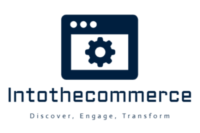
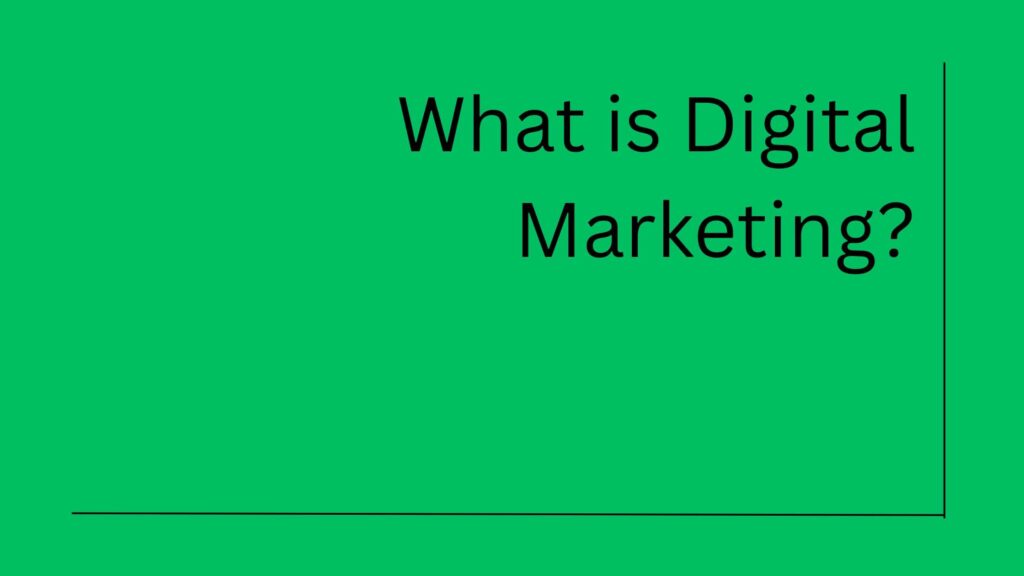
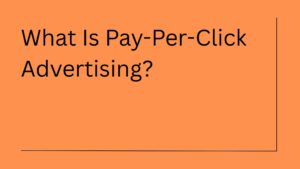
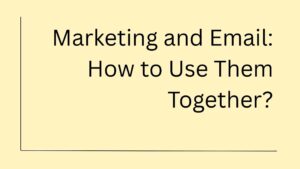
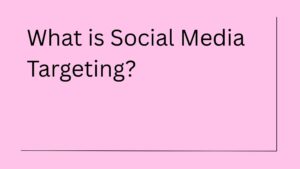
3 thoughts on “What is Digital Marketing? A Complete Basic Roadmap”
Good source of information. Thanks for simplifying the one that always seems sophisticated.
Do you mind if I quote a few of your posts as long as I provide credit and sources back to your site? My blog site is in the very same area of interest as yours; like, I mostly talk about marketing, and my visitors would genuinely benefit from a lot of the information you provide here.
Please let me know if this is okay with you. Thanks!
Hello, this is Julianne from Spain,
I have been browsing online for more than 4 hours today, yet I have never found any interesting article like yours. It’s pretty worthy enough for me. In my opinion, if any website owners and bloggers read your marketing touches, the web would be much more useful than ever before for them.